Kristin joined us at CG, at the beginning of this fall semester, as a Resource Educator. She recently sat down with After School Media Club member, Aubrey Bido, for an interview and shared her passion for special education.

 What’s your job at Common Ground?
What’s your job at Common Ground?
I provide extra help & support for students with learning disabilities. I work with other teachers to modify and provide comprehensive work for students.
What are your previous work experiences? What made CG a good next step for you?
I worked at Benhaven Academy, an outpatient school for students on the spectrum. I worked with students who were 19-22 years old, preparing them for life after services. I prepped students with job, financial and home economic skills. I’m used to working with the high school population, but CG provided a way to work in a public school setting that’s different from what I’m used to – like the number of students and work. CG provides a smaller group setting. This is also my student teaching experience, sort of like practice.
What part of CG made you come here? What motivates you to work here?
The curriculum, it’s more relatable and relevant for students. This is important for special education students because of relevancy. CG also focuses on your growth as a student. And it makes you aware of the community you grew up in, which is very important.
What motivates me to work here is the fact that I know I’m able to help a good amount of students figure out how to navigate their disabilities and learn that it’s not what makes you, as a person. I think a lot of schools focus so much on one style of learner and clearly that’s not how it should be. So I think knowing that I can provide the tools and resources for the students to actually feel good about themselves and be confident in their schoolwork is what motivates me. When I was in high school, that’s when I became aware of my learning disability. I didn’t have someone who could help me navigate it so I feel like, learning from my experiences from high school and in college, I can give students the right guidance to get to a better place in their academic career.
What makes you want to work in an environment with young people/young adults?
I think young people right now are in a very difficult position, in many ways – educationally, socially, and politically. They hold a lot more power and reason than I think people give them, but they’re also in a very vulnerable stage where they may not really know how to navigate the world. Being that I’m not so much older myself, I also think I can relate to them a little bit more than someone older might – which is a good thing because they don’t feel as intimidated coming to me about certain things. And I know a lot of times some students don’t have family members that they can talk to. So I think being a good resource for them, as someone who they feel comfortable talking to about their problems, is super important right now.
What’s your approach to working with young people?
I definitely want to be approachable, to begin with. I don’t want to sugarcoat anything – most of my students will tell you that I’m very honest with how and why I am doing things a certain way. I like to share the purpose – why are we working on organizing, why is it important for you to learn sentence structure, why are these skills important and how do they relate to life after high school.
So I’d say being approachable, being honest, allowing them to talk to me whenever, and being open to helping them with their problems is my approach. With this job, there isn’t just one thing that you’re working on. It’s many things, so listening is important. One of the students in guidance said that they were thankful that I was just listening and I think that’s a huge thing nowadays – listening to students, even if what they say might seem crazy. I think just having someone listen helps.
What’s your approach to special education?
My approach to special education is reminding myself that most of the time it’s not the student’s intent to be the way they are in school. It’s just how they are and they didn’t choose it. A lot of times, they don’t even realize that they’re not producing or comprehending the work that they’re expected to. So being really open to how students are able to do their work and show that they do have the knowledge is part of my approach. Also, letting them know that they’re not incapable of doing the work, they just need to do it in a different way, and that they can definitely be successful with the learning disability. But they also need to work and show me that they want to put in the effort.

 What life experiences made you want to work in education?
What life experiences made you want to work in education?
I actually got into it by accident. When I graduated from college, I had no intention of becoming a teacher – like zero. Then, I worked at a summer camp program, Horizons at Foote School, and there was a kid there who had autism. He was the cutest little boy – he loved this book called “Don’t Let the Pigeon Drive the Bus!” Then, I worked with a lot of students who had a very hard time figuring out and navigating their emotions, and I was able to figure out (on my own) ways for them to communicate and get their work done. I found that very interesting and I thought maybe I can do this for a job. So I found the job opening for Benhaven to be a job coach and I got hired. I was very excited to start my first adult job. Then, as the years went on, I went from being a job coach to becoming an instructional assistant. I was creating curriculum, lessons, and activities, and I realized that I really liked doing that. I enjoy working in special education as well because you can work on your own curriculum and activities and track progress from there. So that’s how I got into special education. Though it was not my first choice when I graduated from college, I am now getting my Master’s in it.
What was your first career choice?
My first choice was social work, which honestly is very similar in many ways, but I couldn’t decide on what kind of social work I wanted to do. Initially, I wanted to do social work with adoption because I’m adopted. But adoption is kind of a dying field, at the moment. I always knew I wanted to work with children, but I just didn’t know to what capacity. So it worked out, I really like teaching.
What’s one change you’d like to see at CG, and why?
I think one change I’d like to see at Common Ground is honestly allowing a study hall during the day. I think not everyone can go home and do homework or have an environment where they can get homework done, so I think allowing for a study hall during the day would be helpful for them or maybe teachers can have a designated time to help students. If students can also pick which teachers they want or need help from, I think that would be really helpful. It also gives them a bit of a break, considering they have the same schedule every single day. When I was in high school, we had B and C days, and they were very different so it kind of helped change up the routine a bit. Whereas, this is like the same thing every day, so I think having a study hall would be beneficial in many ways.
What do you want students and families to know about you as a person?
I think even though I’m young and technically just starting as a teacher, I’ve had a lot of experience in the special education field. Since I’ve worked with several different types of learners, honestly, nothing really surprises me anymore. But the students do make me very happy. I still talk to a lot of my old students and I’m actually seeing some of them in a play soon, so I think the connections I make with students are important and I do cherish them. They’re the reason I keep teaching and I wouldn’t do it if I didn’t enjoy working with the students. I push them because I care, and I want them to succeed. I would also like to thank my resource students for making it enjoyable to come to work and dealing with me when I have not had my coffee.
Would your younger self see you working here?
No, young Kristin would not be happy to see me as a teacher honestly, especially considering that high school was when I started really struggling academically. I think it would be very shocking, but right now I’m very happy with the choices I’ve made. It just shows that you don’t always know where you’re going and sometimes that’s a good thing because I think, if I had gone to school for education to begin with, it might not have led me to the experiences I’ve had.

What are any goals you have completed while working here?
While working here, I won my rugby conference for the third year in a row. We are undefeated! And I’ve also somehow managed to work on my capstone project for my Master’s program at Southern Connecticut State University.

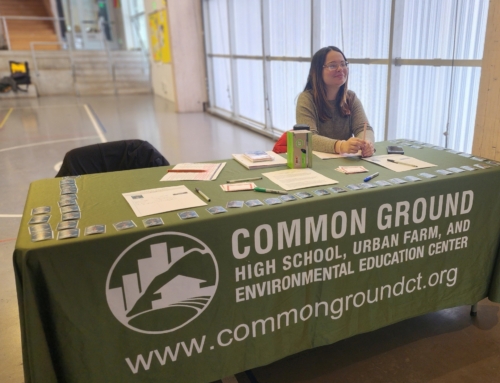
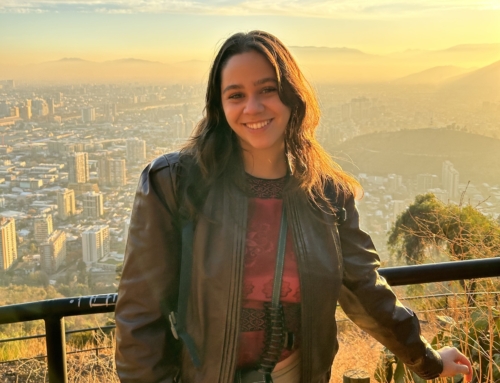
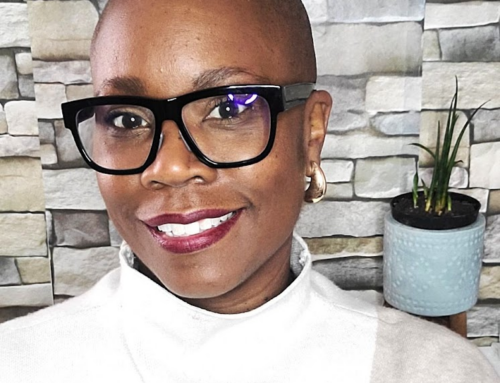
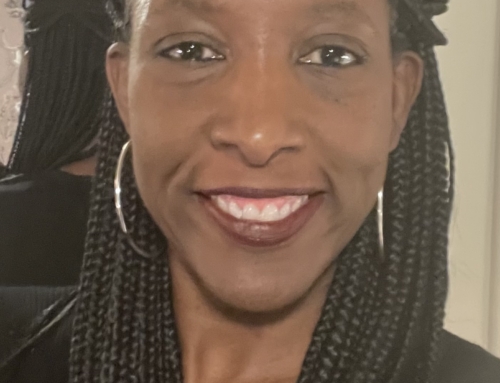
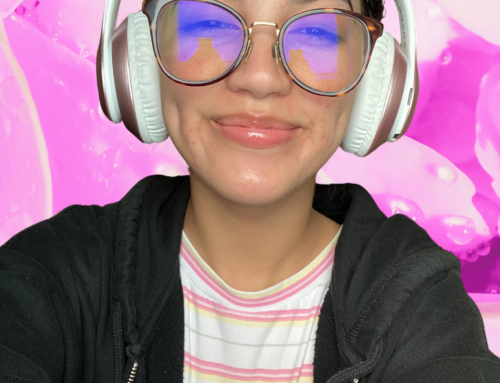
Leave A Comment